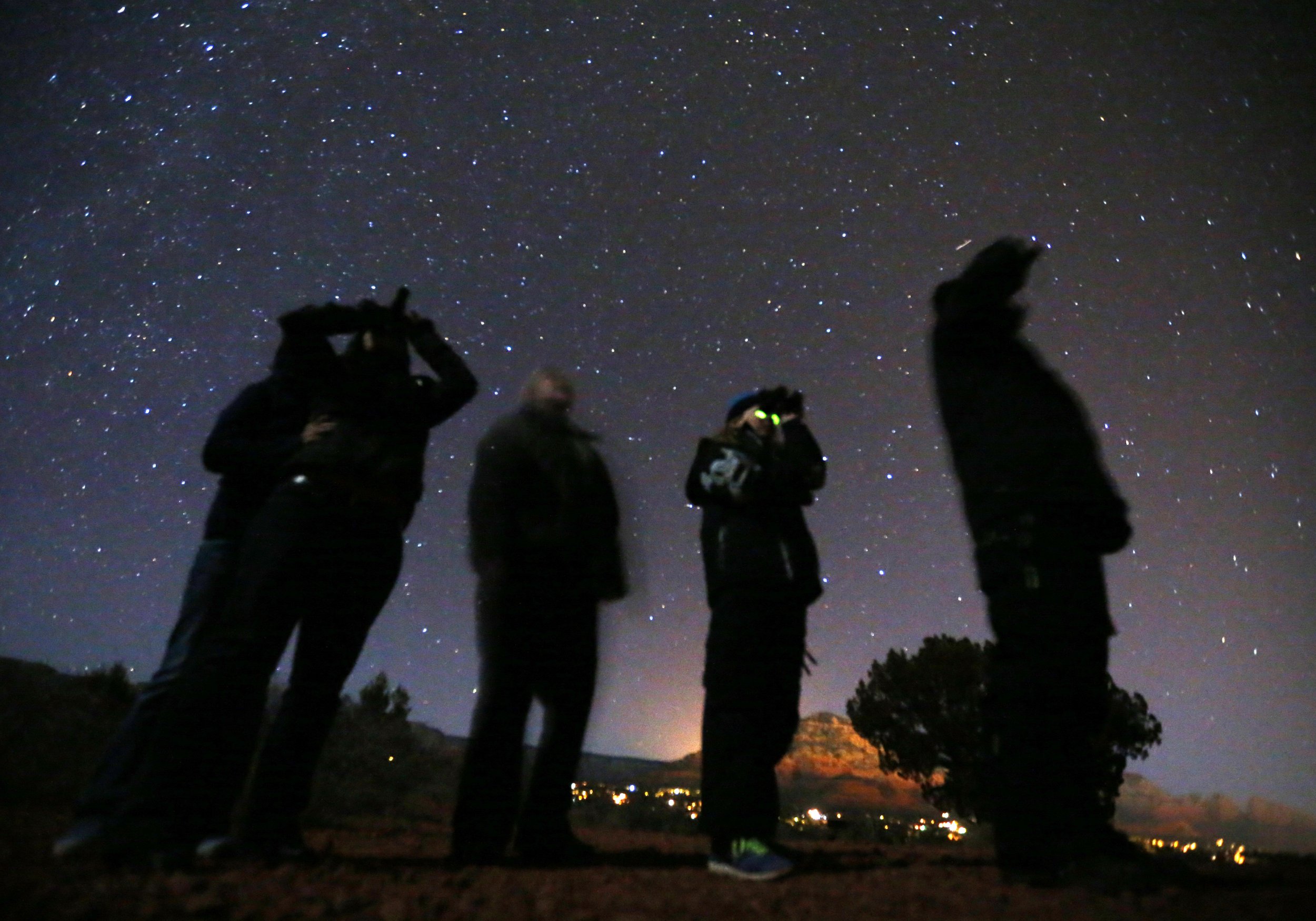
Aliens, those smooth-skinned, laid-back creatures that make routine appearances at your local multiplex, are no longer regarded as strictly fictional. One of the biggest research stories of the past decade is learning that our galaxy is peppered with roughly a trillion planets. Our telescopes can see about two trillion other galaxies. It seems hardly controversial to assume that the universe throbs with life, and that extraterrestrial societies are as plentiful as flies.
Could some of these aliens be not light-years away, but visiting Earth? One-third of the populace believes that at least a few of the many thousands of UFOs reported each year are actually extraterrestrial craft, checking us out or—less impressively—coming to grief in the New Mexico desert near Roswell.
Given this widespread conviction, it's hardly surprising that some members of Congress also think that aliens are sailing the skies, and have spent $20 million of your tax dollars to investigate.
The secret UFO program, revealed this week by The New York Times, will boggle the minds of some. After all, don't we have other, better uses for $20 million? But many will consider this money well spent: They want to know the facts, and they're tired of the truth always being "out there." Lamentably for them, this program has failed to offer compelling evidence for cosmic company. There are intriguing, unexplained encounters by aircraft, but no scientist would jump to the conclusion that these incidents somehow prove that we have visitors.
UFOs aside, there's another effort to discover if humans are the smartest creatures around, a proposition that, while flattering, would imply that we're some sort of miracle—that in a universe stuffed with planets, only Earth has produced intelligence. That experiment is known as SETI, the Search for Extraterrestrial Intelligence, and it too has a long history. It goes back to 1960, when astronomer Frank Drake used a small antenna in the hills of West Virginia in an effort to eavesdrop on radio signals that might be coming from other worlds.
Drake's experiment was greatly expanded in the 1970s, when NASA got into the act. The space agency built some sophisticated radio receivers that, at least on paper, could tune in extraterrestrial, or E.T., broadcasts, even from many light-years away. But this effort—the most comprehensive the world had seen—was ended by a Senate vote in 1993. Since then, all SETI experiments in the U.S. have been funded by donations from the public.
The lack of funds has seriously crippled efforts to prove that someone, or something, is out there. But does that matter? Anyone who reads the news is aware of the serious problems faced by humanity today, and it's easy to say that experiments designed to find aliens are unimportant, that now is not the time.
UFOs "are real": ex-navy pilot describes encounter with Tic-Tac shaped extra-terrestrial https://t.co/K1O0EOBpU9 pic.twitter.com/QItVLXSbbK
— Newsweek (@Newsweek) December 19, 2017
But that argument is untrue, and the reason is historical. SETI is exploration; it's not conventional research, where a scientist can count on a result, either positive or negative. If SETI doesn't find a signal, that doesn't prove that we're alone in the cosmos. SETI is about sailing into the unknown, to see what's out there.
Exploration is appealing. Anyone can empathize with the hardships of those who tried to reach the poles or who were hoping to find the Northwest Passage. But how important is that? Heroic stories aside, is exploration merely a nicety? A lovely, but largely inessential activity?
History suggests otherwise. Sure, many of the exploits during the Great Age of Exploration were undertaken for economic or strategic reasons. But it's simply undeniable that those countries that were indifferent to searching the world didn't do well in the long term. The ancient Egyptians weren't big on exploration, and eventually the Romans took charge. The Chinese of 500 years ago opted to burn their ships, figuring that the only society that counted was already Chinese. Magellan came from Portugal, but his own government was uninterested in his plans to explore. The Spanish were more savvy.
Exploration is useful in a practical sense, but also because it resonates with our natures. Learning that there is someone out there among the stars would not only be a big news story, it would be a story told forever.
Seth Shostak is senior astronomer and fellow at the SETI Institute, in Mountain View, California. He has degrees in physics and astronomy, and is the host of the radio show Big Picture Science.
Uncommon Knowledge
Newsweek is committed to challenging conventional wisdom and finding connections in the search for common ground.
Newsweek is committed to challenging conventional wisdom and finding connections in the search for common ground.
About the writer
To read how Newsweek uses AI as a newsroom tool, Click here.








